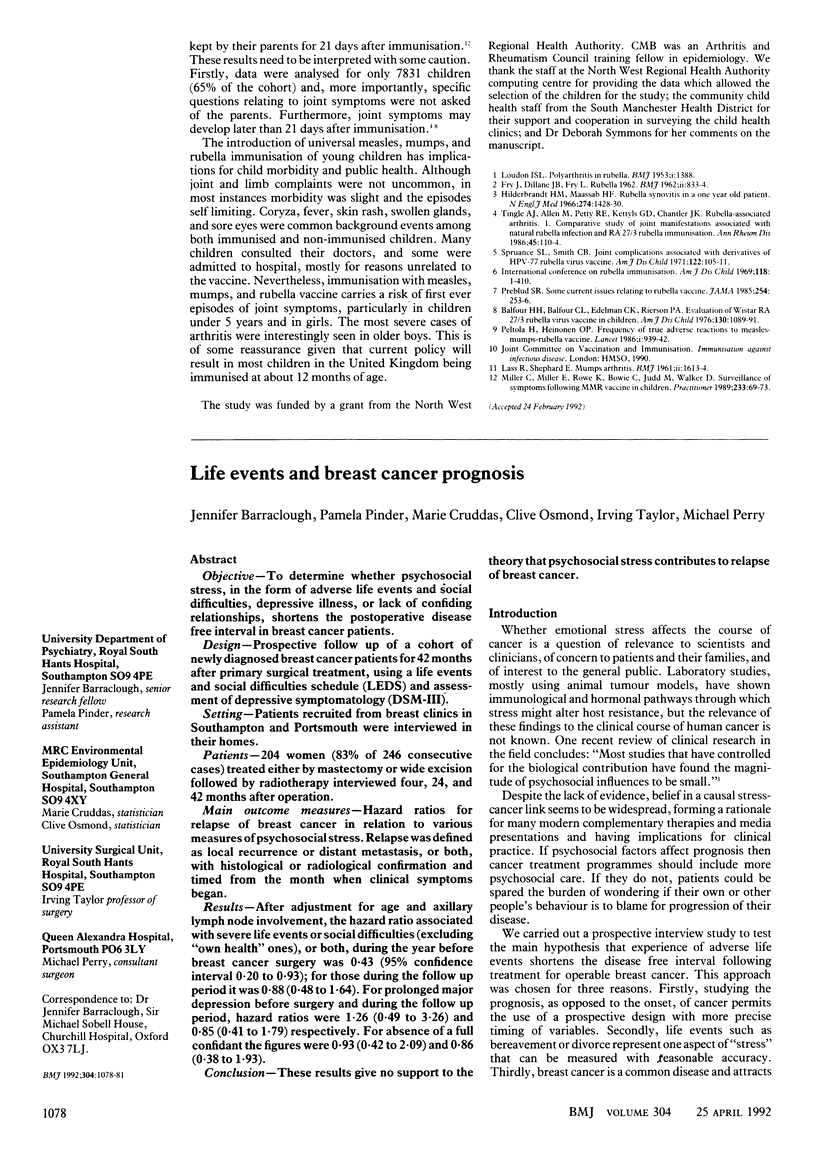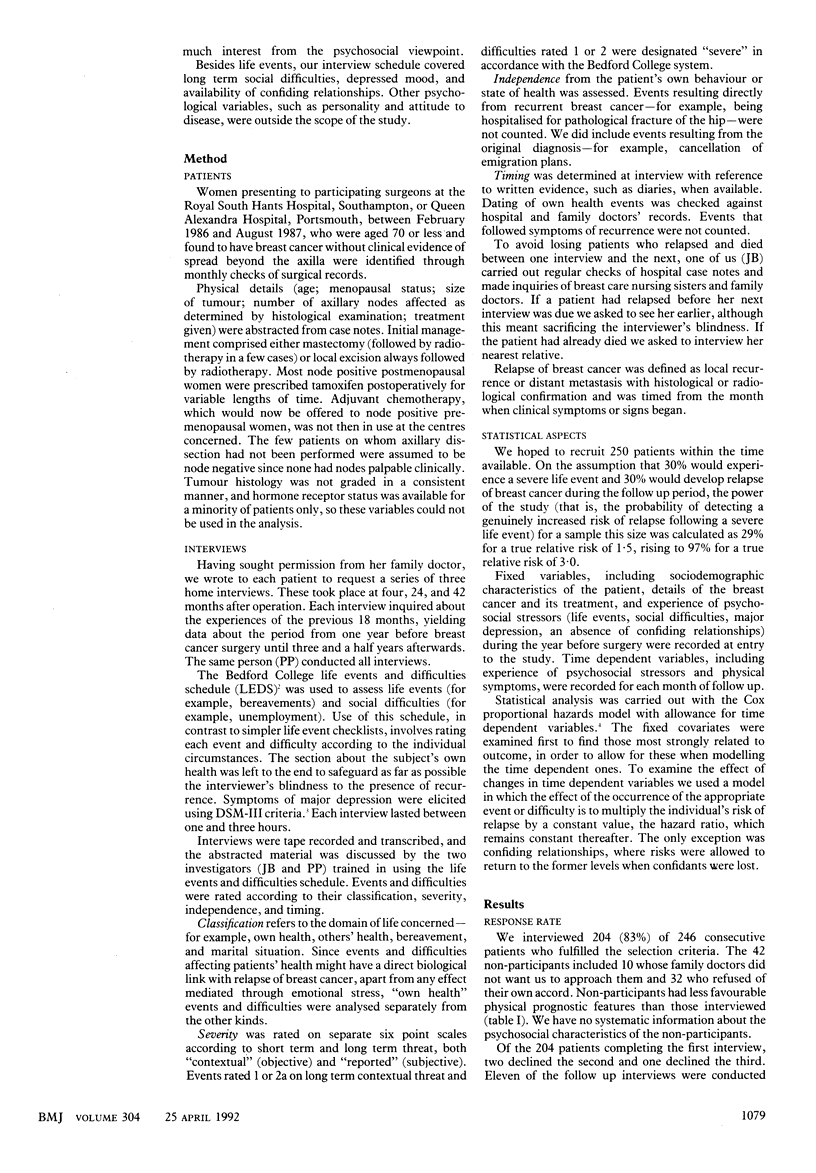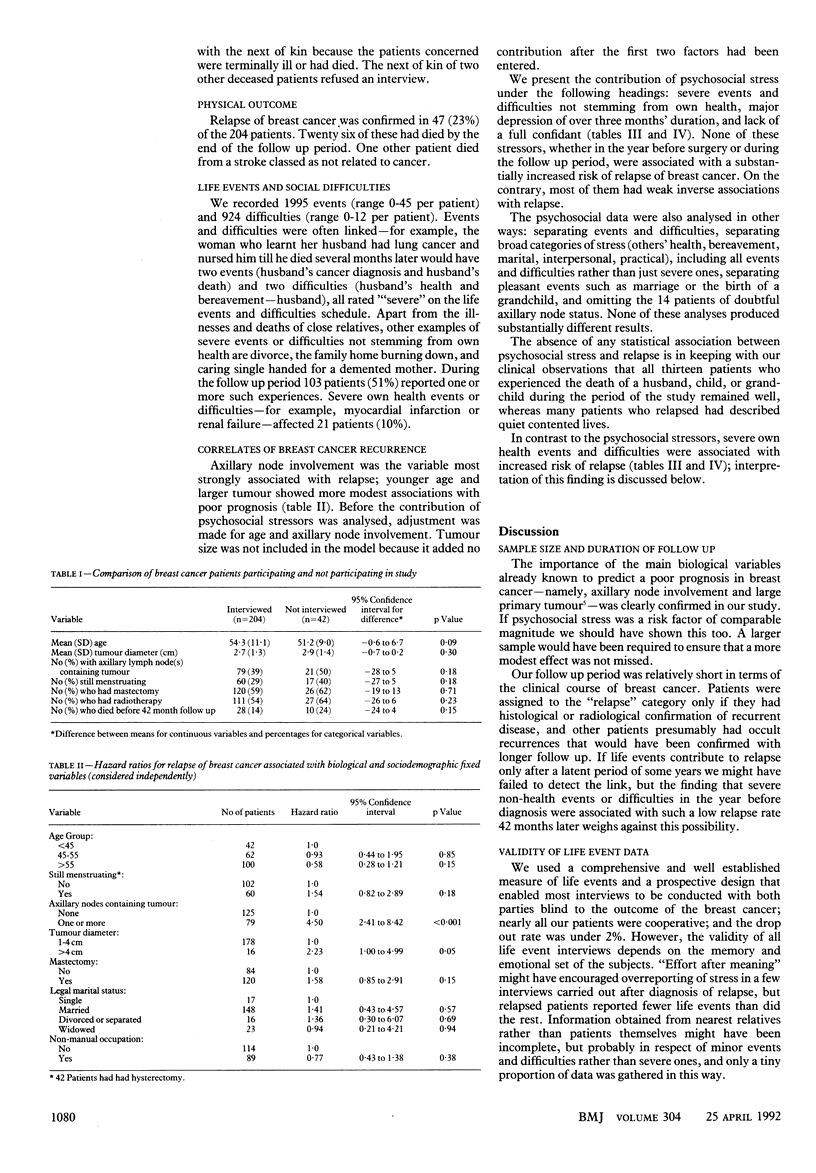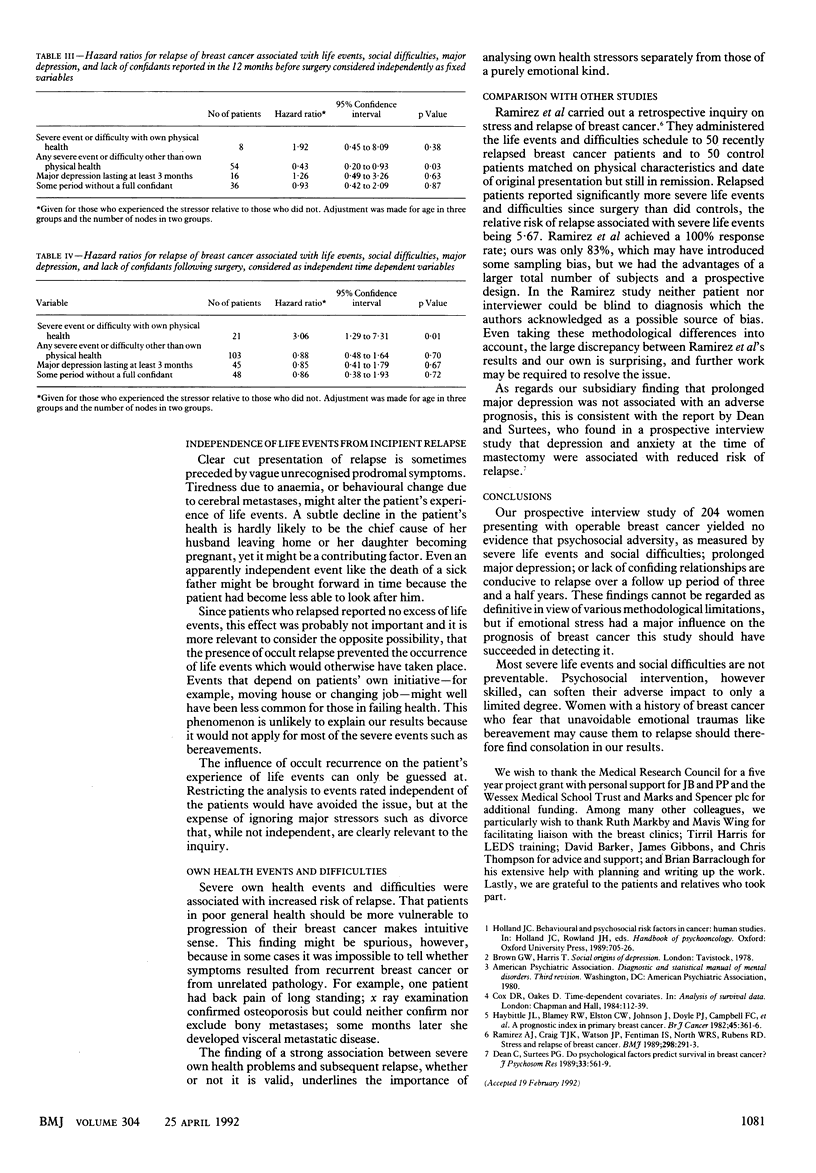Abstract
OBJECTIVE--To determine whether psychosocial stress, in the form of adverse life events and social difficulties, depressive illness, or lack of confiding relationships, shortens the postoperative disease free interval in breast cancer patients. DESIGN--Prospective follow up of a cohort of newly diagnosed breast cancer patients for 42 months after primary surgical treatment, using a life events and social difficulties schedule (LEDS) and assessment of depressive symptomatology (DSM-III). SETTING--Patients recruited from breast clinics in Southampton and Portsmouth were interviewed in their homes. PATIENTS--204 women (83% of 246 consecutive cases) treated either by mastectomy or wide excision followed by radiotherapy interviewed four, 24, and 42 months after operation. MAIN OUTCOME MEASURES--Hazard ratios for relapse of breast cancer in relation to various measures of psychosocial stress. Relapse was defined as local recurrence or distant metastasis, or both, with histological or radiological confirmation and timed from the month when clinical symptoms began. RESULTS--After adjustment for age and axillary lymph node involvement, the hazard ratio associated with severe life events or social difficulties (excluding "own health" ones), or both, during the year before breast cancer surgery was 0.43 (95% confidence interval 0.20 to 0.93); for those during the follow up period it was 0.88 (0.48 to 1.64). For prolonged major depression before surgery and during the follow up period, hazard ratios were 1.26 (0.49 to 3.26) and 0.85 (0.41 to 1.79) respectively. For absence of a full confidant the figures were 0.93 (0.42 to 2.09) and 0.86 (0.38 to 1.93). CONCLUSION--These results give no support to the theory that psychosocial stress contributes to relapse of breast cancer.
Full text
PDF



Selected References
These references are in PubMed. This may not be the complete list of references from this article.
- Dean C., Surtees P. G. Do psychological factors predict survival in breast cancer? J Psychosom Res. 1989;33(5):561–569. doi: 10.1016/0022-3999(89)90063-9. [DOI] [PubMed] [Google Scholar]
- Haybittle J. L., Blamey R. W., Elston C. W., Johnson J., Doyle P. J., Campbell F. C., Nicholson R. I., Griffiths K. A prognostic index in primary breast cancer. Br J Cancer. 1982 Mar;45(3):361–366. doi: 10.1038/bjc.1982.62. [DOI] [PMC free article] [PubMed] [Google Scholar]
- Ramirez A. J., Craig T. K., Watson J. P., Fentiman I. S., North W. R., Rubens R. D. Stress and relapse of breast cancer. BMJ. 1989 Feb 4;298(6669):291–293. doi: 10.1136/bmj.298.6669.291. [DOI] [PMC free article] [PubMed] [Google Scholar]


